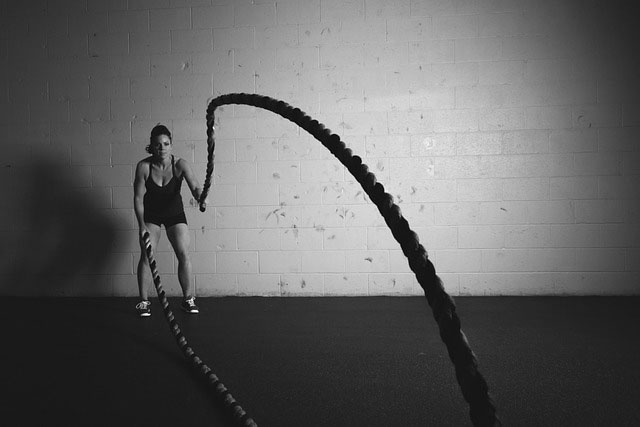Performance testing is a critical, but all too often overlooked aspect of training in mixed martial arts. An effective program of testing and monitoring can help fighters and coaches judge the effectiveness of a training plan and evaluate the potential for overtraining or undertraining. Various physical and psychological tests can be used to assess any number of performance factors, or to identify a fighter’s strengths and weaknesses, or to classify their skill status and ability level. But it is important to realise that performance tests do have limitations. For example, a test cannot precisely identify a fighter’s potential, predict their future performance, or guarantee their success in the cage.
The purpose of this article is to encourage fighters and coaches in MMA to monitor key physical and psychological performance factors in MMA. The MMA Training Bible will teach you to conduct a number of simple sport-specific tests that will form the foundation of a testing program. The results of these tests, when compared over time, can help to identify whether a fighter is responding positively (i.e. supercompensation) or negatively (i.e. undertraining, under-recovery, overtraining) to training.
The first part of this article will review the fundamentals of performance testing and health screening. Subsequent parts will teach you how to conduct simple performance tests in the areas of: psychology skills (identifying strengths and weaknesses, assessing your mood state); body size and composition; muscular power, strength and endurance; anaerobic endurance; aerobic endurance; and sport specific testing.
Part 1: The fundamentals of testing
Effective testing is all about precision and repeatability; you must think like a scientist conducting an experiment. By applying a few fundamental principles of testing, you will greatly increase the accuracy of the tests that you run, and you will improve the overall effectiveness of your monitoring program.
Any test in MMA should assess a relevant performance factor, like anaerobic or aerobic fitness, muscular strength, power or endurance, or even psychological skills like aggression or focus. These tests should be carried out in a careful and repeatable way so that you can compare the results between different fighters, and/or within the same fighter over time. Testing should be conducted every few months and is best undertaken as a collaborative effort between the fighter, the entire coaching staff (i.e. head coach and trainers) and other relevant support staff.
There are a few things that you can do to reduce the error associated with testing and improve the overall effectiveness of your monitoring program. For example:
- Before testing, pre-screen fighters for health, medication and nutritional factors that may influence the results of the test. For example, make sure fighters refrain from consuming energy drinks before testing because they can raise heart rate and blood pressure, and influence psychological traits like anxiety. Inadequate hydration or diet (i.e. depleted muscle glycogen) may also influence testing results, so make sure fighters standardize their diets prior to testing (use a food log).
- Ensure the participant refrains from intense physical activity prior to testing so that they are not fatigued.
- Ensure participants are tested at the same time of day as their previous test, as things like body temperature and wakefulness change over the day and this can influence the result of your test.
- The more times you practice a test, especially complex tasks, the better you get. This is called the learning effect, and it can have a dramatic effect on the result of a test. So, before you record the final results of a test, you should have a fighter practice the test enough times to see a plateau in their performance. In this way you can reduce any learning effect by familiarizing the participant with the test before you start.
- Provide verbal encouragement during the test to ensure the fighter puts in a maximal effort.
- Ensure testing equipment is working properly. Make a point of knowing everything there is to know about the equipment you are using.
- Practice your testing technique and standardize it in order to make sure that you are not introducing error into the test (i.e. stopping a watch too soon or too late).
With an understanding of these fundamental concepts, you are ready to start testing. Every testing session that you perform must begin with a health screening of the potential participant. Safety in exercise testing is paramount and it begins with screening the health and exercise history of the potential participant and then; if they are fit for testing, gaining their informed consent. This process of pre-screening and gaining consent protects the person that is being tested as well as the person running the tests, and it’s the first step in the whole testing process, so don’t skip it! You can download a copy of a physical activity readiness questionnaire (PAR-Q) here. As a side note, you should always have your doctor’s approval before going ahead with any sort of exercise testing – This is my disclaimer!
With all of this fundamental information out of the way, you are now ready to start going through the tests psychological tests next. Stay tuned for the next post, which covers psychological tests.

Leave a Reply